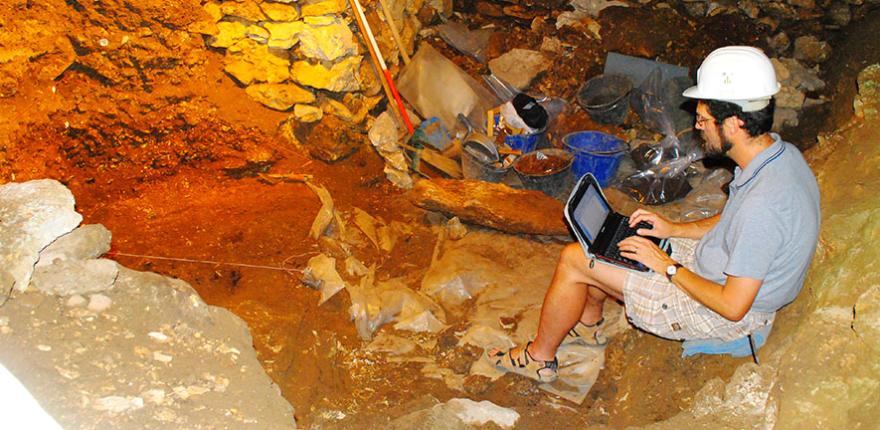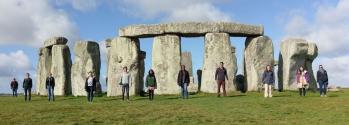

What is Archaeology?
Cambridge advocates a broad and exciting vision. Archaeology is often defined as the discipline that studies the entire human past through its material remains, from the first toolmakers and hunter-gatherers, to farming, early cities, states, empires and their interconnections, up to modern times. Yet it is equally an open crossroads and meeting ground for many different fields, forms of evidence and ways of thinking. These derive from the material world, but also from ancient texts and art, as well as the natural, material and digital sciences, social theory and ethnography. Archaeology is all of the following: the lion’s share of our deep global history; a comparative anthropology with immense time-depth; a way of thinking with material culture and landscape; the human dimension in the long-term dynamics of climate change and ecology; an avenue into how our minds and bodies have evolved in physical and cultural terms; a means of shedding light on humanity’s most fundamental technologies; and a thought-provoking insight into the diverse shapes of human societies and social power over time, with profound implications for the present. If the challenge of this breadth, depth and thrilling unfamiliarity appeal, then Archaeology is probably for you.
What do Archaeologists do?
Many different things. You can be a talented and successful archaeologist in the field (above or underwater), library, laboratory, or museum, behind a computer, or in front of the public. Discovery, analysis and interpretation are equally vital, and fundamental breakthroughs in all three constantly reshape our picture of the past. Archaeological knowledge expands rapidly in exciting, often unpredicted directions, thanks to the contributions of innumerable people — potentially including you. You might find yourself excavating an ancient dwelling or burial, transcribing a cuneiform tablet, conducting chemical analyses of the residues in a potsherd, extracting DNA from a prehistoric tooth, using computer models to analyse vanished trade routes or discussing your findings at a policy forum on global warming. Archaeologists work with information in many qualitative and quantitative forms, with ambitious ideas and theories, and with methodologies that allow these to be bridged. Archaeology is inherently inter-disciplinary, with strong links across the arts, humanities, social and hard sciences. It is therefore a collaborative endeavour that brings together complementary forms of expertise to address big, multi-dimensional questions with diverse kinds of information. Individual archaeologists may command distinct skill sets but come together to address questions that are common to all of us, from what makes us human, to the immense diversity of past culture and life-ways. Archaeology is one of the few fields of study at university that truly combines humanities- and science-based approaches to understanding the world within a single degree.
What are the applications of Archaeology?
Archaeology trains excellent, broad-minded global citizens, with a deep training in critical thinking, synthesis and an exceptional range of transferable skills. Such people work in innumerable spheres of public life, nationally and internationally. It equally provides a professional career path into academic and development-led field archaeology, as well as work in the large, vibrant museums and heritage sectors. With its distinctive emphasis on teamwork, communication and digital skills, collaborative problem-solving, and an ability to work with, combine and draw conclusions from very different kinds of data, it provides a rigorous and versatile training for facing the complex intellectual and analytical challenges of today and tomorrow.



